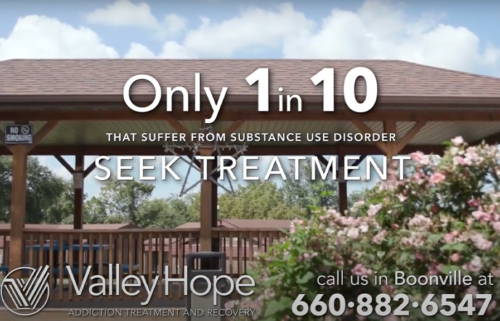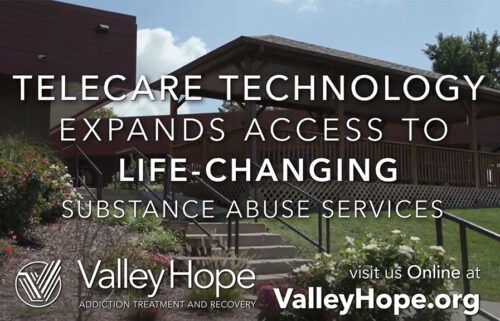High rate of deaths at detention center results in more tools for safety
By Jennifer Emert
Click here for updates on this story
ASHEVILLE, North Carolina (WLOS) — Families are struggling for answers after the Buncombe County Detention Center saw the worst rates for in-custody deaths between 2019 and 2022 in North Carolina.
The state’s rate for in-custody deaths has also increased every year for the last several years, despite a decrease in local jail populations.
In 2017, Michele Smiley ingested what she told staff was “a lot of meth” before her arrest and booking at the Buncombe County Detention Center. Her family reached a $2 million settlement with Buncombe County.
“She was in trouble in booking and they should have called in,” Irene Kent told News 13 in 2018 when the lawsuit was filed. “Michelle probably would have been alive today with her family if that had happened.”
Nine more deaths since 2019 have the Kent’s in 2022 sharing concerns expressed by the Biddix family.
“One is a tragedy, multiple is a trend, what is happening or not happening?” Questioned Devon Biddix, Jacob Biddix’s sister.
Biddix’s 2020 death has the family questioning procedures even after a State Bureau of Investigation (SBI) review and Buncombe County District Attorney’s Office review found no wrongdoing.
“He’s in their house, they’re supposed to take care of him to an extent, human, as a human,” said Cassandra Biddix, Jacob’s mother. “Like basic, and they didn’t,” included Devon.
While jail deaths have increased statewide, recently Buncombe County has had the worst rate. Luke Woollard of Disability Rights North Carolina tracks in-custody deaths statewide.
“We’re seeing, when we look at these deaths, is a lot of reports of non-compliance with the jail rules during the DHSR [Division of Health Services Regulation] are statutorily mandated inspections and really looking statewide as Disability Rights of North Carolina does, we’re seeing several systemic issues across the state when we look at these deaths,” Woollard said.
INTAKE QUESTIONING In Buncombe County, the SBI and North Carolina Division of Health Service Regulation (DHSR) found no wrongdoing, leaving families wondering what is done to ensure inmate safety.
“We meet them at the door. There’s a series of questions that we ask,” said Captain Jeffrey Littrell, Buncombe County Detention Center administrator.
“We ask, ‘have you swallowed narcotics, controlled substances?’ That’s a yes or no, how long ago,” Capt. Littrell said. “The reason we ask how long, the medical director has said anything within four hours is an urgent send to the hospital,”
In 2021, 31 were sent for medical clearance pre-custody at the Buncombe County Detention Center.
Littrell said it can be tricky when inmates aren’t being truthful.
“With us, I’ll be honest, with us, they’re not,” he said. “We’re officers, they come in, they’re already upset, the arresting officer that has brought them in, they’re mad at us, so they’re not initially truthful.”
BODY SCANNER DEPLOYED It was Smiley’s death that caused Sheriff Quentin Miller to secure $140,000 for a full body scanner.
“It was something that I felt this facility needed, not only to keep the detainees safe, but also the handling of the drugs by our detention folk,” Sheriff Miller said. “So it’s also a tool to keep them safe.”
“You put your hands down to your side at your hips, your thumbs touching your hips,” said Capt. Littrell, showing News 13 how the body scanner works.
The technology mirrors airport security. Staff could see if someone’s recently swallowed an illicit substance or has contraband.
“Those white spots there, those are air pockets, but when something shows up in someone’s stomach it looks similar, except it has a halo ring around it because it’s a foreign object,” Littrell said.
It works best on items in the throat and upper stomach. According to jail administrators, detection diminishes as time passes and illicit substances are absorbed or digested. In 2021, Buncombe County had 19 positive body scans, but it can’t be used on everyone.
“Do you have a problem standing, do you currently need any medical attention, do you have a pacemaker? Because not everybody can go through this,” Capt. Littrell explained some of the reasons why someone couldn’t be put through the scanner.
There’s been two overdose deaths despite increased questioning and deploying the scanner. Another area of concern for Disability Rights of North Carolina, for jails in general are supervision rounds.
GUARDIAN RFID TECHNOLOGY “It’s not a failure to be adequately trained to recognize one thing or the other,” Woollard said. “It’s really a failure to make the supervision round, a failure to make the rounds as required, directly observe folks as required. And when those failure happen, often times we see folks miss very clear signs, folks are in distress.”
State law requires rounds are conducted twice every hour, no more than 40 minutes apart. Special watch is checked every 15 minutes. A check of the death records found Buncombe County in compliance. In July of 2021, Buncombe County started using Guardian RFID’s handheld devices to track rounds.
“These little red tags, you scan it and you hear it click and that shows you where I’m at,” Capt. Littrell demonstrated the use of the devices.
Guards can add notes on an individual’s condition as well.
“Once I swipe close here, that information gets sent to a cloud and database and I can check it real time,” he said.
According to Guardian RFID’s website, it prevents guards from signing off on rounds that aren’t completed.
“So, if they’re a minute late or past the time limits we set up, which we have them set at every 15 minutes, when they’re past that it sends an alarm to the device and the computer, so it gives them an alert, ‘oh I need to go do a round,’” Capt. Littrell said.
A September 2020 update to statewide rules required each inmate be screened by a medical professional or officer for medical needs, mental health, risk of suicide and substance use. But Disability Rights North Carolina’s attorney feels overall, more withdrawal protocols are needed.
BUNCOMBE COUNTY’S MAT PROGRAM “Screening folks adequately when they come in for risk of overdose or risk of withdrawal, if they’re going to go into the jail and no longer be able to have access to whatever they were using and especially just medical care ongoing from that point,” said Woollard.
Buncombe County’s detention center is one of the few to add Medication Assisted Treatment, or a MAT, program. At medical intake, nurses ask detainees a series of questions to identify if they may be a candidate for treatment.
“How many overdoses have you had? And if they answer five to 20 we put them on a fast track to see the doctor to get into that treatment pathway much sooner,” said Sarah Gayton, Buncombe County Detention Center MAT services director.
A detainee can then continue taking or are prescribed Methadone or Buprenorphine.
“It can be dangerous if someone doesn’t have that medical support and that treatment while they’re detoxing,” Gayton explained.
“Times have changed, the state that people are coming to our jail has changed,” Sheriff Miller said. “I call it the critical conditions they’re coming in because of health care, because of the opioid crisis and drugs, period. And also the mental health.”
OFFICER TRAINING Sheriff Miller has also increased officer training.
“We’ve upgraded that, the fact that they’re training, the fact that we have nurse looking at them upon entering, and then we start talking about how we observe them once they’ve went through the process,” Sheriff Miller said.
But efforts to add additional booking staff after a 2021 review revealed Buncombe County was “understaffed in the high risked area” have hit the same roadblocks as many businesses struggling to recruit. Sheriff Miller said that shouldn’t keep the county from exploring any opportunity to improve safety.
“We have to do things differently because times have changed and based on that we want the community to know we’re going to work every day to seek improvements,” he said. “We’re not just satisfied with the things we have, we’re going to constantly be on the lookout for what else and how else we can do our job better.”
Another area Disability Rights North Carolina highlights is if a detention center doesn’t have the means to provide mental health or other specialty care for an individual, they should be transferred somewhere that can.
The Buncombe County Detention Center has had a detainee on special watch they’ve been trying to transfer and is on a wait list for a mental health facility for just shy of six months, but there are no open beds. The detainee remains in the Buncombe County Detention Center.
Please note: This content carries a strict local market embargo. If you share the same market as the contributor of this article, you may not use it on any platform.



